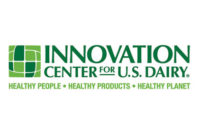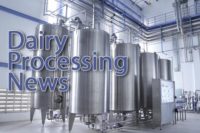The Codex Alimentarius Commission sounds like a secret organization in a Mission Impossible movie. But while the commission doesn’t have much to do with spies, it does have a real impact on the U.S. dairy industry.
The Codex Alimentarius Commission, or Codex for short, is actually a United Nations organization that develops international food standards, guidelines and codes of practice. Issues regarding biotechnology, pesticides, food additives, contaminants, and labeling are all discussed and acted upon at Codex meetings. Many nations adopt whole cloth Codex standards.
A framework for regulation
Fundamentally, Codex provides much of the regulatory framework underpinning the $200 billion a year international trade in food, including dairy. Codex standards are also used as reference points in resolving disputes involving the World Trade Organization’s Agreement on Sanitary and Phytosanitary measures.
As such, it is critically important that the U.S. dairy sector engage thoroughly with Codex to support food safety and provide for international regulatory coherence, which allows market opportunities around the world to remain open to our dairy exports.
Codex is jointly run by the World Health Organization (WHO) and the Food and Agriculture Organization of the United Nations (FAO), which also houses the Codex Secretariat. The motto of Codex is “safe, good food for everyone,” and there are more members in Codex (186) than the World Trade Organization (161).
Codex meetings are conducted, and documents written, in six languages: English, French, Spanish, Arabic, Chinese and Russian. The annual meeting of the full Codex Commission alternates between Geneva, where the WHO is located, and Rome, where the FAO is located.
Processed cheese standard
In the first week of July, IDFA staff journeyed to Geneva for the 38th annual session of the full Codex Alimentarius Commission. I was a member of the U.S. delegation and my colleague, John Allan, IDFA vice president of regulatory affairs and international standards, was credentialed through the International Dairy Federation. At the meeting, the Codex member states considered several recommendations from its committees and task forces. Of particular interest was the Commission’s decision to adopt the proposed draft processed cheese standard at Step 5 of the Codex standard development process, and continue work to move it toward finalization by July 2016.
IDFA opposes the work on the standard because Codex has tried for more than a decade to revise the standard without reaching consensus on several key provisions, and IDFA believes Codex resources could be used more effectively in other important areas where standardization is more needed and feasible.
IDFA also is concerned that a new Codex processed cheese standard would allow lower-quality “processed cheese” to be covered by the same international standard as high-quality American processed cheese.
The Committee on Milk and Milk Products, which conducted the work on the standard and is chaired by New Zealand, is now tasked with convening a committee sub-group meeting to proceed with work on the draft, and to consider holding a full committee meeting, if necessary, to resolve the outstanding issues. The committee is to complete work by July 2016, but several attendees noted that this deadline is unrealistic. Most of the same impediments that blocked the creation of a standard over the last decade still exist and will make creation of a new standard extremely difficult. IDFA will continue to participate in this process.
rBST and dairy permeate powder
A draft standard for recombinant bovine somatotropin (rBST) that establishes maximum residue limits (MRLs) in milk and edible dairy cow tissues was held up again from being finally adopted by the Commission to provide further time for developing consensus. A veterinary drug, rBST is used in dairy cattle to increase milk production. Discussion of these MRLs has been on the Codex agenda for over 20 years. The Commission agreed that the standard will remain on future agendas until a decision can be made as to the fate of the standard.
The Commission also agreed to begin work on a standard for dairy permeate powder and installed an electronic working group that will be chaired by Denmark.
The outcomes of the meeting in July only underscore the importance of working with and through the Codex Alimentarius Commission. Final decisions on Codex standards have a direct impact on U.S. dairy exports. As we seek to maximize the strong fundamentals of the U.S. dairy sector in the export arena, we need to make sure that regulatory trade barriers don’t crop up because we weren’t paying close enough attention to work transpiring at Codex.
The U.S. dairy industry needs to be fully engaged with this important international organization, and here at IDFA, we are doing just that.



